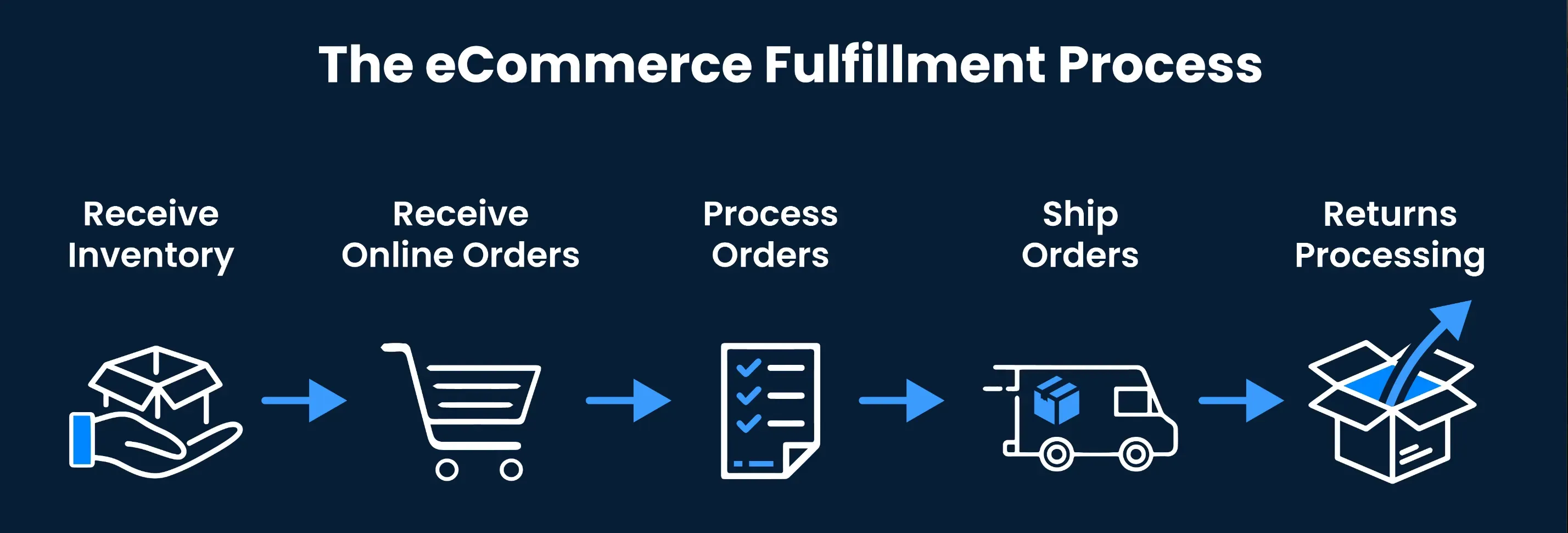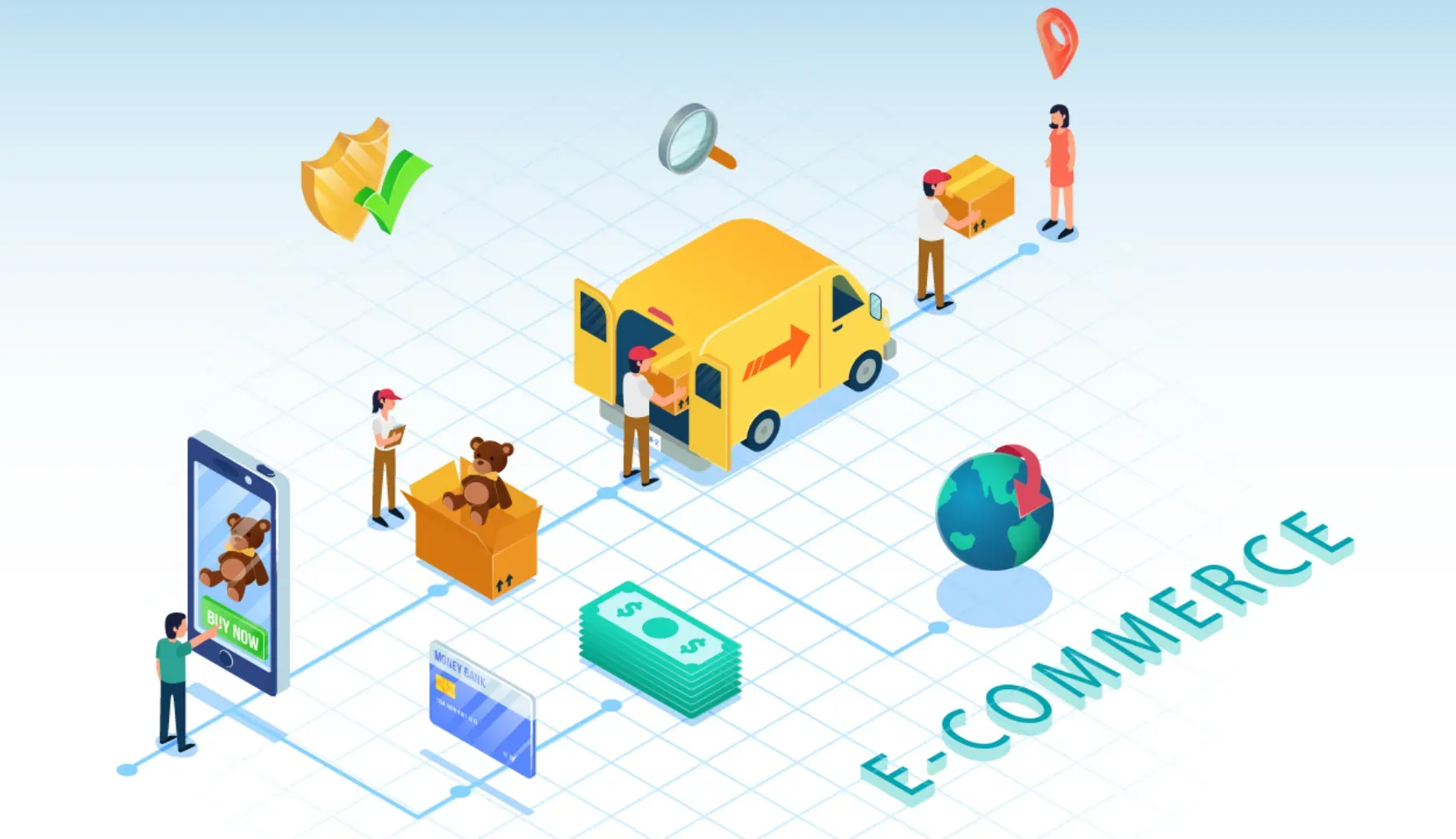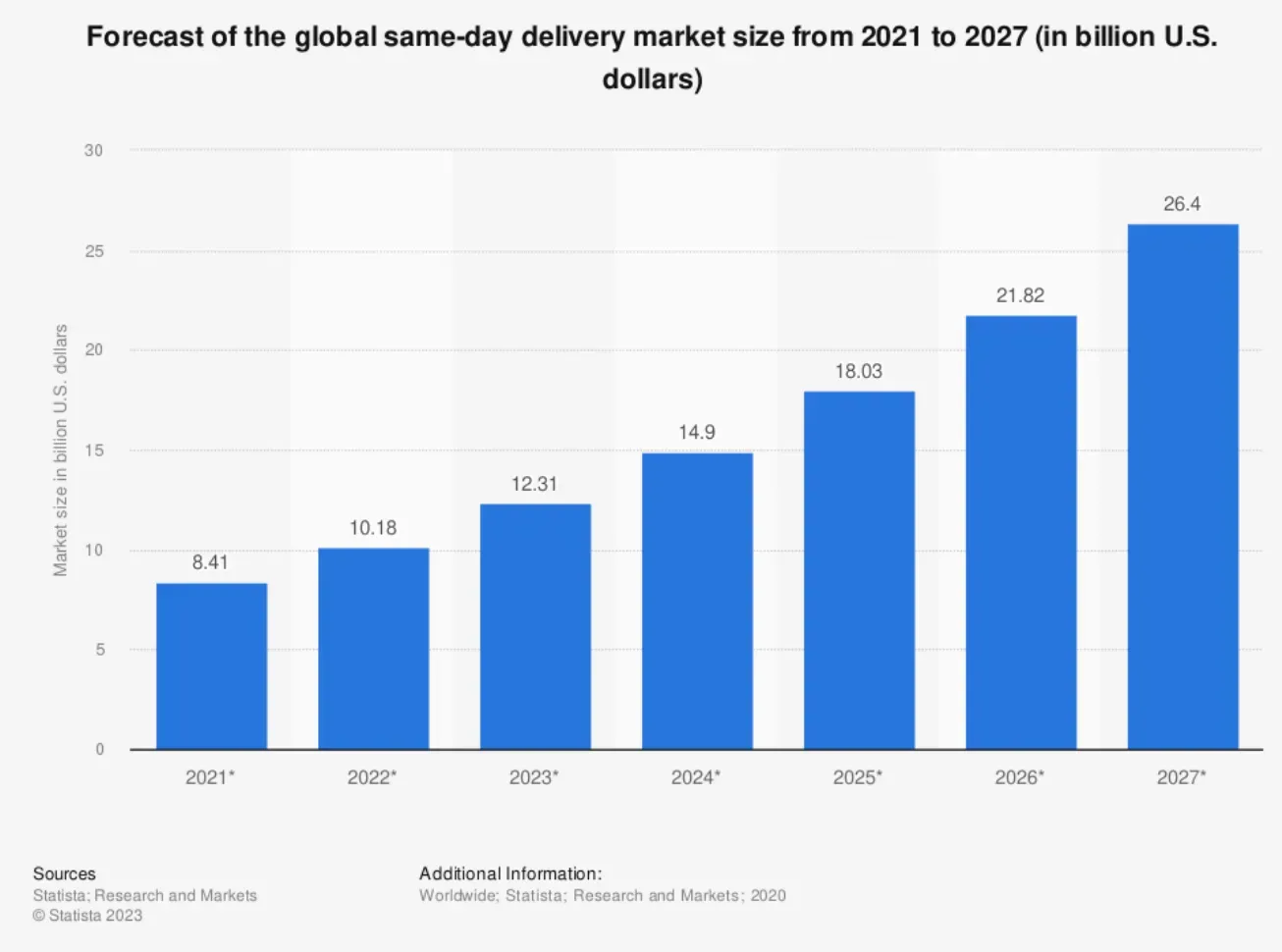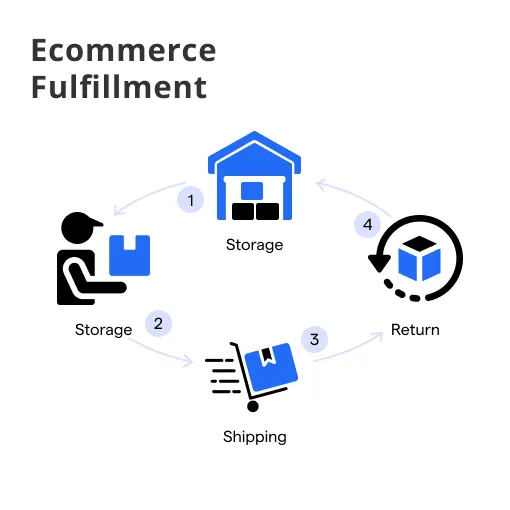What is Ecommerce Fulfillment?
Ecommerce fulfillment encompasses the entire process of receiving an order on an ecommerce platform to delivering the product(s) to the customer's doorstep.
In ecommerce, fulfillment plays a critical role in customer satisfaction, sales growth, and business scalability.
Components
Typically, ecommerce fulfillment comprises order receipt, inventory management, product storage, packing, shipping, and handling returns or exchanges.
Types of Ecommerce Fulfillment
It can be performed in-house by the business, outsourced to a third-party logistics (3PL) company, or fulfilled by the marketplace (like Amazon FBA).
Ecommerce Fulfillment Centers
These are large warehouses designed to store inventory, pack and ship orders, provide customer service related to shipments, and manage returns effectively.
Why Ecommerce Fulfillment is Vital?
Understanding the significance of ecommerce fulfillment can shed light on why it's a priority for online businesses.
Customer Satisfaction
Timely and efficient delivery of orders plays a crucial role in enhancing customer satisfaction and loyalty.
Business Reputation
A smooth and error-free fulfillment process bolsters a business's reputation, contributing to its credibility and dependability in the market.
Scalability
Outsourced fulfillment or utilization of fulfillment centers can aid in business expansion and scalability by handling increased order volumes effectively.
Profitability
Effective fulfillment processes can reduce shipping times and costs, improve inventory management, and increase overall business profitability.
Competitive Advantage
In the competitive ecommerce landscape, offering speedy deliveries, seamless returns, and efficient customer service can give businesses a significant edge.
Who is Involved in Ecommerce Fulfillment?
Several key players contribute to the ecommerce fulfillment ecosystem.
Online Retailers
These are the businesses selling products online and may handle fulfillment themselves or outsource it to a 3PL.
Third-Party Logistics (3PL) Providers
3PLs provide outsourced logistics services, which include warehousing, order fulfillment, and shipping for ecommerce businesses.
Fulfillment Centers
Whether owned by the business, a 3PL or a marketplace, these warehouses play a central role in the storage, packing, shipment, and return of products.
Customers
Customers form the end of the order fulfillment process, and their satisfaction hugely determines the effectiveness of the entire operation.
Delivery Service Providers
These are the carriers responsible for transporting the order from the warehouse to the customer’s location.
When Does Ecommerce Fulfillment Occur?

The following sections explain the timeframes and stages in ecommerce fulfillment.
Pre-Sales
The fulfillment process effectively begins even before a sale occurs with inventory management, warehousing, and logistics planning.
Post-Sales
Once a sale is made online, the order is processed, packed, and shipped to the customer. Tracking information is typically provided post-sales.
On-Demand
Some fulfillment processes, such as on-demand manufacturing or dropshipping, commence only after the order is placed.
Continuous
Certain activities, like inventory replenishment and warehouse maintenance, are ongoing to ensure a smooth fulfillment process.
Post-Delivery
Fulfillment extends beyond delivery, as handling returns, exchanges, and customer queries forms part of the process.
Where Can Ecommerce Fulfillment Take Place?
Ecommerce fulfillment can operate in diverse contexts and locations based on the business strategy and customer demographics.
In-House Fulfillment
Smaller businesses may conduct fulfillment operations from their existing premises or dedicated storage spaces.
Third-Party Fulfillment Centers
These are independent facilities where multiple businesses can store their products, with the center handling fulfillment on their behalf.
Marketplace Fulfillment Centers
Major ecommerce platforms run their own fulfillment centers (e.g., Amazon FBA), providing services from storage to customer service for sellers on their platform.
Dropshipping
In this model, the seller doesn't handle any stock. Instead, orders are forwarded to a supplier who ships the products directly to the customer.
Hybrid Approach
A mix of the above options can be used based on the size of operation, product types, and market presence.
How is Ecommerce Fulfillment Achieved?

This part underscores the process and techniques used in ecommerce fulfillment.
Inventory Management
Effective inventory management ensures optimal stock levels, reducing storage costs and preventing stock-outs or oversupply.
Order Processing
Once an order is received, it is picked from the inventory, packed with essential product and shipping information, and made ready for dispatch.
Shipping and Delivery
Orders are then handed over to courier services for delivery. Transit times depend on shipping methods and customer location.
Returns and Exchanges
A clear and easy returns and exchanges policy forms part of good fulfillment practice, fostering customer trust and satisfaction.
Customer Service
Providing prompt and helpful customer service, especially regarding order queries, shipment tracking, and returns, strengthens the fulfillment process.
Technological Integration in Ecommerce Fulfillment
Technology plays an enormous role in enhancing and streamlining ecommerce fulfillment.
Inventory Management Software
These systems track stock levels, sales trends, and provide valuable insights for inventory planning and optimization.
Order Management Systems
OMS allows efficient handling of orders across multiple sales channels and ensures that shipping and customer information is accurately processed.
Shipping Software
Shipping software simplifies the process of selecting courier services, calculating shipping costs, and printing shipping labels.
Customer Relationship Management (CRM)
CRM systems enable effective communication with customers throughout the fulfillment process and efficient handling of customer issues.
Automation
Advancements in robotics and AI are increasingly used in fulfillment centers for activities like picking, packing, and sorting, increasing accuracy and efficiency.
Suggested Reading:
Ecommerce Software
Ecommerce Fulfillment Trends

Keeping up with new trends in ecommerce fulfillment allows businesses to stay competitive and cater to evolving customer expectations.
Same-Day Delivery
With customer demand for quicker deliveries, same-day delivery services are becoming a pivotal trend in ecommerce fulfillment.
Green Shipping
Eco-friendly packaging and reduced carbon footprint in deliveries are significant due to increased consumer awareness about sustainability.
Personalized Packaging
Customized packaging enhances the unboxing experience for customers, reinforcing your brand's identity and attention to detail.
Omnichannel Fulfillment
Integrating multiple sales and delivery channels offers customers flexibility and convenience, such as buy online pick up in-store (BOPIS).
Advanced Analytics
Big data and predictive analytics are used to optimize various areas like inventory planning, routing packages, and customizing customer experiences.
The Future of Ecommerce Fulfillment
Embracing future developments and possibilities can help businesses navigate the evolving landscape of ecommerce fulfillment.
AI and Machine Learning
The rising use of AI and ML in forecasting demand, optimizing inventory, and personalizing customer interactions is set to revolutionize ecommerce fulfillment.
Drone and Robot Deliveries
Automated deliveries via robots or drones offer potential solutions for last-mile delivery challenges.
Micro-Fulfillment Centers
Small-scale, automated fulfillment centers located nearer to customers can significantly reduce delivery times.
IoT in Fulfillment
Internet of Things (IoT) technology can improve real-time tracking and efficiency in warehouse management.
Dark Stores
These are retail spaces transformed into local fulfillment centers, enabling faster deliveries and curtailing costs.
Frequently Asked Questions (FAQs)
How Does Ecommerce Fulfillment Connect to Customer Satisfaction?
Ecommerce fulfillment directly impacts customer satisfaction. Prompt and accurate delivery of purchases is crucial in retaining customers, making efficient fulfillment a key factor in ecommerce success.
What Role Does Inventory Management Play in Ecommerce Fulfillment?
Effective inventory management is crucial in ecommerce fulfillment. It ensures products are available for delivery, helps prevent stockouts or overstock situations, and contributes to smooth, timely fulfillment.
How Can Order Tracking Enhance Ecommerce Fulfillment?
Order tracking boosts ecommerce fulfillment by improving transparency. Customers appreciate knowing their order status, which can strengthen trust in the ecommerce brand and heighten customer satisfaction.
What's the Significance of Return Management in Ecommerce Fulfillment?
Good return management is vital in ecommerce fulfillment, affecting customer experience and loyalty. A straightforward, fair return policy, with easy-to-follow procedures, can help retain dissatisfied customers and foster repeat business.
How does 3PL (Third-Party Logistics) Factor into Ecommerce Fulfillment?
Many ecommerce businesses use 3PL service providers for fulfillment. These specialists handle storage, picking, packing, and shipping, enabling businesses to focus on core operations. They can help scale fulfillment processes as the ecommerce company grows.

